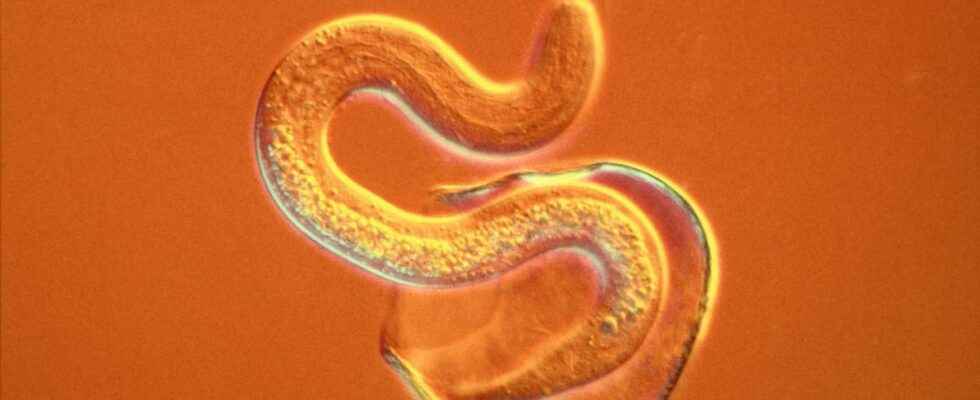Published on
Updated
Reading 2 mins.
Scientists have just developed an amazing early detection test for pancreatic cancer, based on tiny worms. Zoom on this test already marketed in Japan.
This screening test, currently being tested in Japan, would have the particularity of using worms a millimeter long – the “nematodes” – to detect pancreatic cancer early.
Worms known for their heightened sensitivity to odors
Very long devoid of symptoms, pancreatic cancer is often discovered too late, with a very poor prognosis. In France, the incidence of the latter continues to grow (14,000 new cases/year), particularly among women. Faced with one of the deadliest cancers, the challenge is to have a test allowing effective and reliable early detection.
Faced with this objective, the biotechnology company “Hirotsu Bio Science” today presents an interesting and unique innovation. Their test is based on tiny worms a millimeter long whose “smell” is famous. In concrete terms, the company has been studying these nematodes for 28 years and has already published several studies reporting their ability to detect cancer cells.
Hirotsu Bio launched its first N-NOSE consumer test in January 2020 which assessed the ability to tell whether users were at high risk of cancer or not. About 250,000 people took the original test, with about 5-6% testing positive.
In its latest version, the company has changed the genetic code of roundworms to steer clear of pancreatic cancer samples. Hirotsu Bio has worked with pancreatic cancer, due to its difficulty in diagnosis and speed of progression.
“What is very important with the early detection of cancer (…) is to be able to detect very minute quantities. And in this field, I think that machines have no chance against the capacities of living organisms.”, says the general manager of the company.
Direct-to-consumer test kits
Unlike other types of tests, these “kits” can be sold directly to consumers, for the modest sum of $505. A commercial has already been launched in Japan.
Specifically, users send a urine sample through a special mailing bag to a laboratory, where it is placed in a Petri dish with the nematode species. The creatures, known scientifically as C. elegans, have much stronger senses of smell than dogs, according to the company, and so they can react to cancer cells.
This direct approach to consumers is criticized by some doctors who question the medical usefulness of the results. So Masahiro Kami, the head of the Medical Governance Research Institute think tank in Tokyo, said the false positives could far exceed the number of actual cases of pancreatic cancer, rendering the results “unusable”.
For its part, the company believes that its test should be designed as a screening tool that will allow patients to seek other tests and treatment more quickly if necessary. She now hopes to export the test to the United States by next year and also plans to extend this process to other types of cancer (liver, cervix, breast, etc.).
